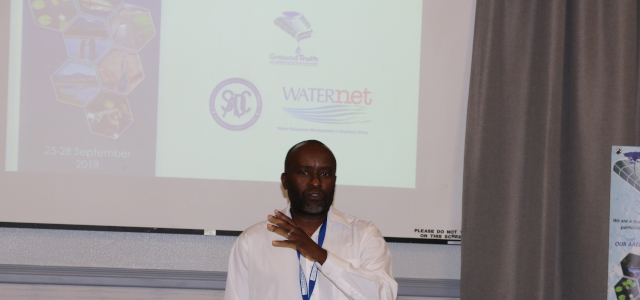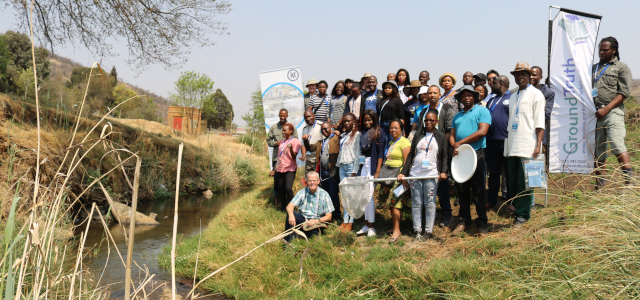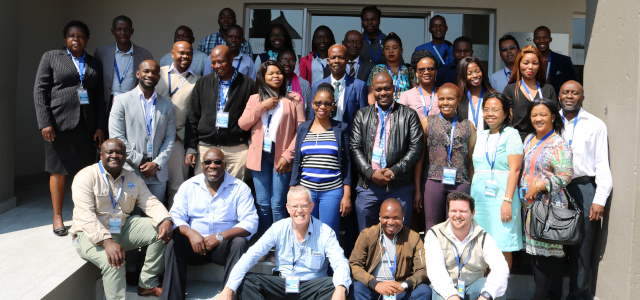WaterNet is a regional network of university departments, research and training institutes specialising in water, based in Southern and East Africa who have expertise in various aspects of water resources management.
The network aims to build regional institutional and human capacity in Integrated Water Resources Management (IWRM) through training, education, research and outreach by harnessing the complementary strengths of member institutions in the region and elsewhere. An implementing partner for the Southern Africa Development Community (SADC) Water Division, Waternet supports the Secretariat in the implementation of capacity development programmes.
Well trained and skilled human capacity is vital in achieving Sustainable Development Goals (SDGs) and the SADC Water Division’s vision of “An equitable and sustainable utilisation of water for social and environmental justice, regional integration and economic benefit for present and future generations”. Moreover, SADC recognises the importance of nurturing educated, skilled, healthy, and productive human resources in improving the livelihoods of the region's population and promoting investment , efficiency, and competitiveness in the global economy.
Speaking at the recently held Training on Monitoring and Communicating of River Water Status, Dr Krasposy Kujinga, the WaterNet Programmes Coordinator underpinned the critical role of human capacity development in ensuring sustainable management and exploitation of the region’s water resources.

Dr Krasposy Kujinga, Programmes Coordinator at WaterNet Secretariat
“The training forms part of the Professional Training Courses Implementation Plan for the SADC Water Sector (2016 - 2020) being implemented by WaterNet on behalf of the SADC Water Division, under the SADC Regional Strategic Action Plan (RSAP IV), 2016 – 2020 . The 19 diverse courses, implemented from April 2017 – April 2019, are being funded by the British and German Governments through the delegated authority of Deutsche Gesellschaft für Internationale Zusammenarbeit (GIZ) GmbH.
The series of courses within the plan is aimed at addressing knowledge and skills gaps and meta-competencies in support of the implementation of the RSAP IV ", noted Dr Kujinga. The courses, which are being delivered mainly in English, with some in French and Portuguese, are being implemented are in the following areas:
• Negotiation skills in transboundary surface and groundwater resources management
• International water law and instruments including UN articles on groundwater
• Gender Mainstreaming in Transboundary Water Management
• Financing of water infrastructure projects
• Water Demand Management
• Monitoring and communicating of river water status
Further to identifying capacity development needs among water professionals, the courses explore experimental and mentorship possibilities and pave way for the establishment of a collaborative mechanism for short professional training courses
SADC Water Division’s identified human capacity development as a critical pillar in attaining its vision. In light of this, partners from the SADC Region involved in human capacity development identified the need to develop and plan a roadmap implementation plan of training activities that can be conducted to effect capacity development in the sector for the 5-year period (2016-2020).
The Professional Training Courses Implementation Plan builds upon approaches the Water Division has employed in capacity development activities and brings a pragmatic approach to already existing approaches to capacity development activities and the management of water resources in general.
The training programme is guided by the intervention activities identified in the Strategic Human Capacity Development Plan of the SADC Water Sector for the period 2014 to 2020. Among the areas that form part of the training programme are the Water-Energy-Food Nexus, Gender mainstreaming and Groundwater Management, which constitute part of Global Water Partnership Southern Africa (GWPSA) ‘s programme portfolio.

Dr. Jim Taylor explaining the use of Citizen Science tools in Monitoring River Status
As part of the above-mentioned human capacity development plan, a 4-day course on Monitoring and Communicating of River Water Status was held with the objective of capacitating participants from the SADC Member States and RBOs with knowledge and skills on various methods and ways of monitoring and communicating river water status. The training, held in Johannesburg, South Africa on 25-28 September was attended by 31 participants from 13 SADC member states, the International Union for Conservation of Nature (IUCN ) and GWPSA. As part of commemorations for the World Rivers Day 2018, participants went through a field trip to Klipriviersberg Nature Reserve, where they undertook practical training on monitoring of River Water Status using Citizen Science tools.
For the past 19 years, WaterNet has been collaborating with the Water Research Fund for Southern Africa (WARFSA) and GWPSA in organising the annual WaterNet/WARFSA/GWP-SA Symposia in the Eastern and Southern African regions. The symposia allow knowledge exchange, identification of regional issues, gaps and priorities that require further research and support as well as promoting interaction among policymakers, academics, practitioners from water and related sectors, and cooperating partners. 2018's Symposium was held in Livingstone, Zambia from 31st October to 2nd November 2018, under the theme “Integrated Water Resources Development and Management: Managing Water for the Future in a Changing Environment in Eastern and Southern Africa”.
